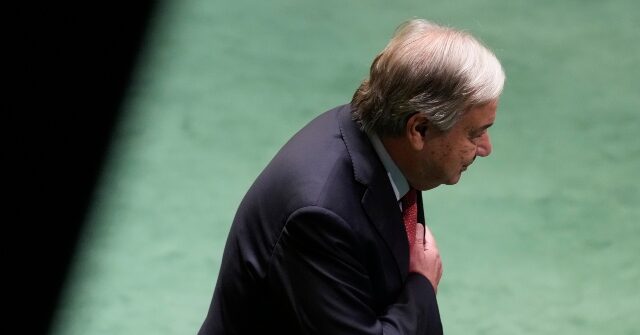The situation surrounding the declaration of UN Secretary-General Antonio Guterres as persona non grata by Israel has triggered a wave of international reactions, particularly among countries of the Global South. India was notably absent from a recent letter initiated by Chile, which garnered support from 104 countries urging Israel to reverse its ban on Guterres. The letter posited that such a ban compromises the UN’s effectiveness in mediating conflicts and providing humanitarian aid, underscoring the need for respect towards the UN’s leadership and mission. While India and a few others abstained from signing the letter, a number of its key allies, including China and Russia, expressed solidarity with Guterres, emphasizing a growing divide over issues related to the Israeli-Palestinian conflict.
The backdrop to this diplomatic tension is Israel’s reaction to Guterres’ perceived failure to unequivocally condemn Iran after a considerable missile attack on Israeli territory. Israeli officials, including Foreign Minister Israel Katz, argued that Guterres’ reluctance to directly label Iran as the aggressor warranted the ban, suggesting that his inability to condemn such actions betrayed the foundational principles by which Israeli national security is defended. This reaction is set against a year of mounting strain between Israel and the UN, particularly following the Hamas attack on Israel’s territory, which claimed numerous lives and resulted in widespread violence.
Guterres’ comments following the October 7 attacks, where he seemed to echo sentiments of a justification for Hamas’s actions by citing the context of ongoing Palestinian suffering, ignited further outrage from Israeli representatives. Israeli Ambassador to the UN Gilad Erdan called the remarks “shocking,” suggesting they amounted to a rationalization of terrorism, undermining Guterres’ role as an impartial UN leader. The backlash was echoed by officials from Yad Vashem, the World Holocaust Remembrance Center, who criticized Guterres for failing to firmly condemn the attacks and thus not living up to the ethos of “never again” that is paramount in discussions around the Holocaust and global responses to terrorism.
In stark contrast to Guterres’ statements, the Indian government, led by Prime Minister Narendra Modi, has vehemently condemned Hamas and expressed unequivocal support for Israel. Modi’s remarks following the attacks highlighted a commitment to counter-terrorism, illustrating India’s position as a nation that unreservedly stands with Israel during this tumultuous period. The narrative constructed around India’s response emphasizes a broader ideological aversion to radical Islamic terrorism, distinguishing its position from other nations within the BRICS coalition, where public sentiment may be less aligned with Israel.
Statements from Indian officials, including BJP spokesperson RP Singh, reinforced this stance by denouncing Hamas’ actions as far worse than those of ISIS, marking a clear line of delineation in the framing of conflict narratives. This articulation reflects a broader strategy where India engages with multifaceted alliances while maintaining pragmatic foreign policy relationships. Despite its historical support for Palestinian statehood, India’s stance in the current geopolitical climate exhibits a reluctance to condone violence emanating from groups like Hamas, aligning it more closely with Israel’s perspective.
The divisive rhetoric witnessed in recent weeks has also highlighted the complex dynamics within BRICS, a coalition now grappling with differing national perspectives on Israel and the Palestinian territories. While the organization as a whole has criticized Israeli measures against Hamas, the divergence in stances among member states, particularly between Iran and India, is becoming increasingly pronounced. Iran’s Supreme Leader Ayatollah Khamenei labeling India an “enemy of Islam” reflects heightened tensions, showcasing how complicating factors such as national security interests and ideological alignments can lead to fractures within cooperative frameworks, despite shared membership in platforms like BRICS.
In summary, India’s response to the ongoing conflict and its alignment with Israel amidst international criticism of Guterres’ treatment echoes broader geopolitical themes of solidarity, national security, and counter-terrorism. The juxtaposition of Indian and international reactions exemplifies how nations navigate complex diplomatic channels while being influenced by historical alliances, domestic sentiments, and global political climates, ultimately redefining their positions on global conflicts such as the Israeli-Palestinian crisis.

